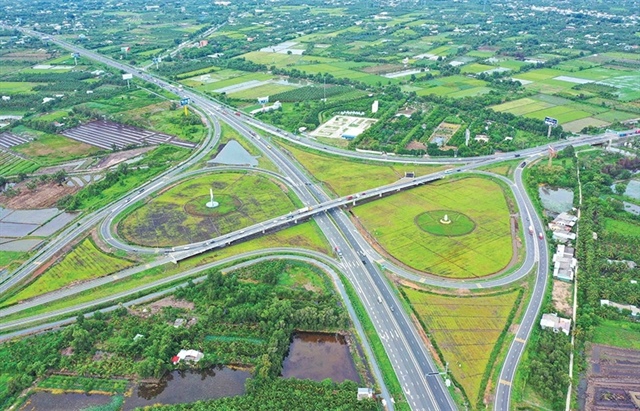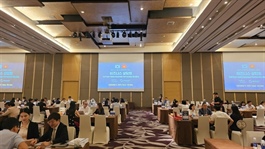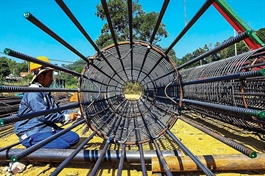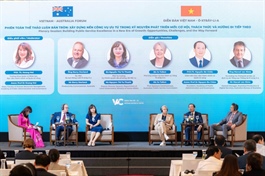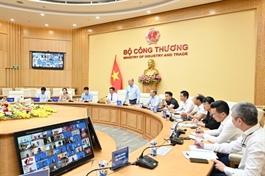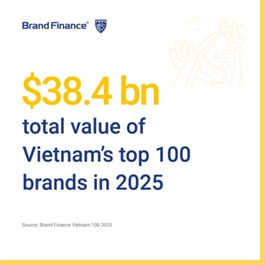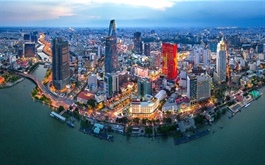Investors and businesses to gain from streamlined mechanisms
Investors and businesses to gain from streamlined mechanisms
Updates to the investment regulations are set to help businesses streamline procedures, reduce costs, and expand market access.
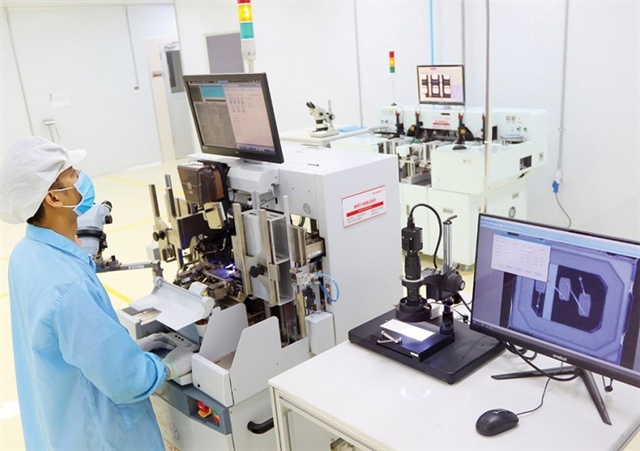
Investors doing business in various economic or industrial zones will benefit from fewer procedures, photo Le Toan |
The Vietnam Chamber of Commerce and Industry (VCCI) has submitted comments to the Ministry of Finance (MoF) to expand their scope of application in the draft amended Law on Investment.
The draft has been completed with seven chapters and 62 articles, and is currently being circulated for feedback from the business community and financial backers in order to be finalised and submitted to the government soon.
“We recommend studying the expansion of projects eligible for special investment procedures to other categories, such as ventures in high-tech zones and industrial areas, in order to create a breakthrough in administrative reform and enhance the attractiveness of the business environment,” the VCCI proposed.
In the Business Law Flow Report 2024, released at the end of May, the VCCI analysed the major idea of this procedure: the shift from a pre-audit to a post-audit mindset by eliminating most procedures that investors currently must complete during project implementation.
“When special procedures are applied, investors no longer need to carry out numerous permits and approvals related to construction, fire prevention, and science and technology appraisal,” the VCCI noted. “They only need to complete the procedures for obtaining a registration certificate and an environmental permit, while management requirements will be implemented through post-check mechanisms.”
This process has significantly shortened administrative timelines and created better conditions for related activities. However, its current application remains limited, mostly restricted to certain sectors and specific areas such as industrial and high-tech zones.
“The implementation of such procedures is an important step forward in administrative reform and investment attraction policies. Therefore, further research and evaluation are needed to expand their application to more sectors and localities in the future,” the VCCI report explained.
As per the amended draft, when investors do business within industrial zones, export processing zones, high-tech zones, concentrated IT zones, free trade zones, or functional areas within economic zones, they only need to obtain a registration certificate and an environmental permit.
They are exempted from other common procedures such as approval of policy, technology appraisal, environmental impact assessments, detailed planning, and construction and fire safety permits.
Along with the proposal, the VCCI also supports the MoF’s idea to narrow the scope of projects required to undergo investment policy approval procedures, as set out in the draft policy proposal.
In the draft, the MoF is proposing numerous policy changes to quickly address regulatory bottlenecks, such as eliminating the ask-give mechanism.
Hoang Manh Phuong, deputy director of the MoF’s Department of Legal Affairs, highlighted that one major policy change is to narrow the scope and simplify procedures for policy approval and issuance of investment certificates.
“In the draft law, the approval procedure will only apply to projects with major impacts on the environment, national defence and security, or those that use natural resources such as land, forests, seas, minerals, or important infrastructure ventures,” Phuong said at a meeting in August.
Decision-making authority will be strongly decentralised to localities, reducing the number of cases that must be submitted to a higher level, thereby shortening timelines and lowering costs for investors.
“The authority of the prime minister to approve policies will continue to be delegated to provincial people’s committees for projects such as foreign-invested afforestation, those involving betting and casinos, and offshore wind power schemes,” he added.
Moreover, the MoF also proposes allowing foreign backers to establish economic organisations in Vietnam without the requirement of having a prior project, similar to domestic ones.
“This represents a strong market-opening move, removing barriers to entry and ensuring the principle of equal treatment,” Phuong said.
Another key point is the revision of the list of conditional business lines. The MoF proposes to review and reduce business lines subject to conditions that are no longer appropriate or necessary to regulate through pre-audit mechanisms; abolish sectors and/or conditions that can be managed through technical standards and regulations, such as inland waterway vessel repair and refurbishment services, shipbuilding and repair services, and accounting services.
Conditional business lines will be identified where investment and business activities must meet necessary conditions for reasons of national defence, national security, social order and safety, social ethics, or public health. This approach aims to ensure the freedom of business for individuals and enterprises, while still maintaining state management objectives in key areas.
- 13:00 15/09/2025






